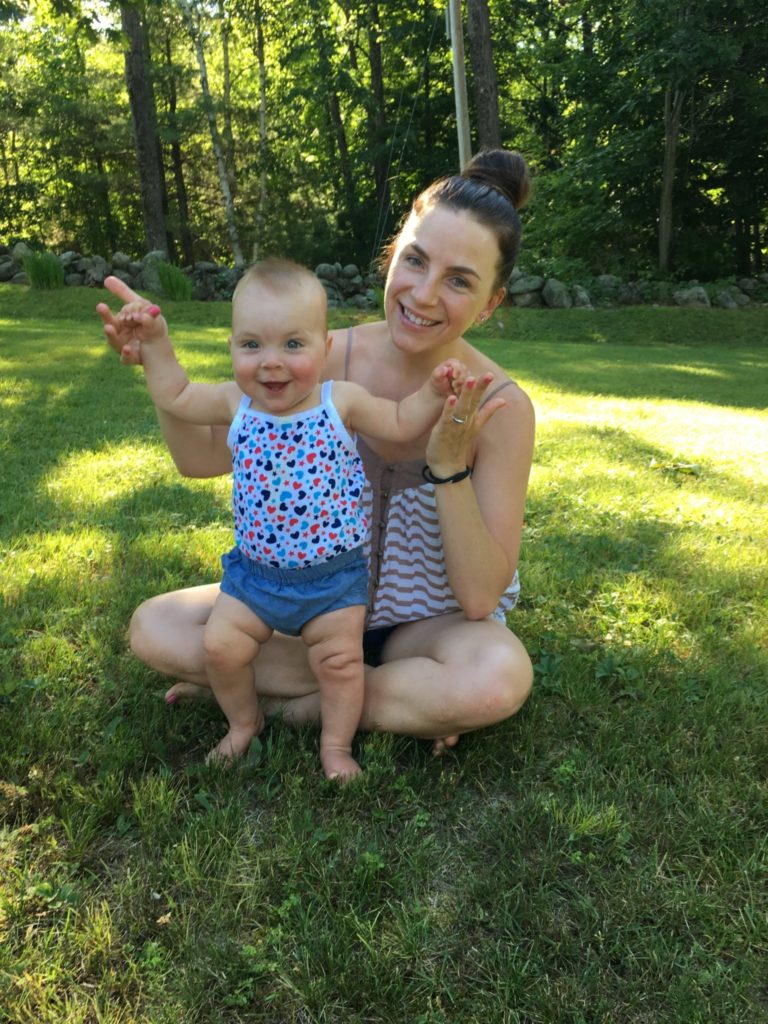
What to expect postpartum? Well first lets understand what it actually means. The postpartum definition means; following childbirth, or the birth of young.
It is considered to be the time after your child’s birth to about 6-8 weeks, after you have recovered from childbirth. Postpartum expectations have different meanings to different cultures and societies. Here in our society it seems to be a race to see who can recover the quickest get out of the house and start going back to the regular life of go go go. Let’s take a look at some facts we know and why it’s important to change this mentality.
Before we get into expectations, pp depression, and more, I want to say one thing. Here at FED Coaching we believe you never exit the postpartum phase after having a child.
Does your body heal? Of course.
Do you forget about childbirth? Sure.
Do your hormones rebalance and your child grow? Yes!
Do you go back to work? Of course. What do we mean by this? Keep reading!
Once you become a mother you are never the same again.
You are reborn and given a gift of new life to grow alongside your child. To reinvent yourself and your life to your highest strengths and ability to set the best example for your child. Becoming a mom is by far the most amazing, but hardest thing you will ever encounter. Postpartum birth starts your journey and will continue on until your child is grown and living outside of your home living their own wonderful life. Let’s start with what to expect after birth and where to go from there!
The Fourth Trimester:
Here is how we break it down, what you could expect along the way, and why some things can’t be fit into a 6 week period.
Birth-6 weeks. This is the sacred time when you learn more than you could ever imagine in a short period of time while recovering from the trauma of birthing a baby.
What to expect postpartum:
1. So much love and bonding.
Take this time to cuddle, snuggle, hug, kiss, and just stare at your little one. Talking, singing, and skin to skin contact are so important. Giving your child love supports healthy brain development, and a safe secure place for them to be themselves. Reading, and singing help develop the child’s cognitive and language development, not to mention their imagination! Skin to skin contact(not just right after birth but continued)has been proven to:
- Better able to absorb and digest nutrients
- Better body temperature maintenance
- Cries less often
- Demonstrate improved weight gain
- Experience more stable heartbeat and breathing
- Higher blood oxygen levels
- Long-term benefits, such as improved brain development and function as well as parental attachment
- More successful at breastfeeding immediately after birth
- Spend increased time in the very important deep sleep and quiet alert states
- Thermoregulation
- Stronger immune systems
So yeah, let’s do more skin to skin contact.
2. Hormones rebalancing.
Expect some sweaty nights as your estrogen and progesterone hormones rebalance to not being pregnant. (Hormonal rebalancing can happen many times within the first year postpartum. Mostly 0-6week, and around 3-4 months. Postpartum hair loss comes from this and it is completely normal as your body fully recovers.)
3. Engorgement, clogged milk ducts, and mastitis.
As you navigate breastfeeding expect to be engorged! We recommend always having a really good pump handy, even at the hospital.
If you feel a lump in your breast or feel a painful area, it could be a clogged milk duct. Try a warm shower and massage it out. It’s important to unclog the duct because it can cause an infection called mastitis that is NOT fun, but totally treatable. Engorgement usually only happens in the beginning of nursing. Once your baby gets the hang out breastfeeding, and you get into a good eating schedule this will stop.
NOTE: If you go off your schedule, or leave your baby for the first time, definitely have a pump, and breast pads around because it can still happen.
4. Circadian rhythm.
We all know when having a baby to expect sleepless nights but you really have no idea until you are in the thick of it. Your baby has to develop a circadian rhythm and that starts as soon as they enter the world, but it can take some time.
Ways you can help them: Develop a morning and nighttime routine and consistently perform it. Make it known that daytime is bright and sunny, and nighttime is dark and quiet. When doing evening and nighttime feedings try not to talk or interact much, letting them know it is not time for play but for rest. Try our Free 30-Day Routine Builder and check out our website to get 10-sleep solutions for tired parents.
Note: You are not superwomen, and NO ONE can survive without sleeping. Don’t try to be a hero! Ask for help.
5. Nap.
Nap as much as you can, wherever you can. Ask for help. Leave chores for another time. You are no good to anyone running on fumes. As short as a 6-minute nap counts!
6. Postpartum Depression.
Sometimes postpartum depression can be hard to spot because your hormones are rebalancing, you’re exhausted and don’t feel like yourself. Depression happens in 6.5 to 20 % of pp women within the fir 6-weeks. Think extreme; mood swings, anger, sadness, repeating phrases, insomnia, loss of hope. You might not see these symptoms in yourself so make sure that your partner and friends have a general idea of what to look for. Hospitals usually send home information for the family, make sure it is read and understood. PP depression is SERIOUS and should not be taken lightly. If you ever think someone you know is going through it, you can contact the nation hotline here.
7. Diastasis Recti.
When you go to get cleared by your doctor at your 6-week check up, make sure they check you for the condition Diastasis Recti. It is a common condition that happens to all pregnant women where the abdominal muscles separate to make room for the baby. 60% of women recover naturally and the other 40% their abdominal fascia is too stretched to recover on their own. It is treatable with time and patience(in extreme cases surgery). If left untreated you can have a saggy stomach, a pooch, lower back pain, and would not be able to exercise properly. We have an at home check you can watch here. Also check out my personal DR story of recovery in this blog post “Exercises for Diastsis Recti and why it isn’t talked about more. “
After 4-6 you should be cleared by your doctor to work out (unless you had a c-section or have Diastasis Recti or other medical conditions). After that you are on your own my friend, doctors say sayonara and send you on your way. 6 weeks being the very beginning of your postpartum journey.
Why one size does not fit all.
All mama’s birth stories are different. All of our bodies and recoveries are different. Some recover quickly while others can take years to fully get their body back. One child can sleep through the night right off the bat, others don’t sleep until they turn one. Breastmilk production can be small or large, or none at all. Your baby might be colicky, or have reflux. Take YOUR time!!

What we do know about being postpartum, as different as each journey can be, we have many important things in common. We are all mothers that love our children and truly want the best life for them. Each day despite the challenges we do the best we possibly can with the tools we have now. As we relearn our new body and new found purpose in the world we will have good and bad days just like our children. We are imperfect human beings and wouldn’t have it any other way, because there is no such thing as a perfect mom. So don’t be so hard on yourself! You’ve got this mama and we are here to help!
I’m Megan, and I am 7 years postpartum. I still have to ask for help daily, doubt myself often, and overcome challenges every single day. This is motherhood. Your child never stops growing and changing, and neither should you. As my daughter grew older I thought parenting would get easier, news flash! It hasn’t. I realized the gift of being a mother is more about how I act, how I treat myself and others. It’s not about being perfect, it’s about showing imperfections and vulnerability, learning from our mistakes and discovering our true selves. It’s not about power , it’s about guidance and demonstration. Raising my daughter starts with ME and work on myself. I have found more strength than I never knew I had, and continue to grow everyday. You will too.
Check out the FED Coaching programs that have helped hundreds of women change their life, one day at a time.
Resources:
[…] What to expect postpartum. […]